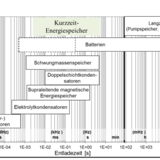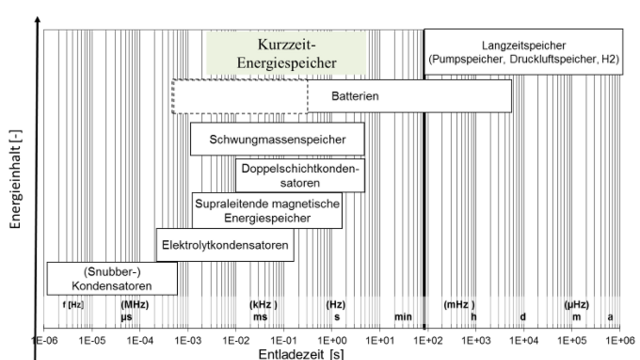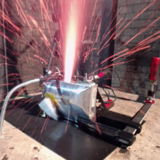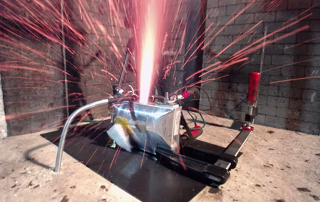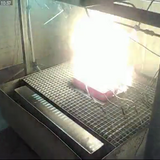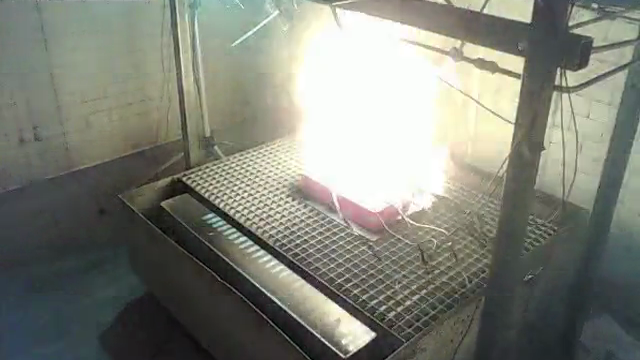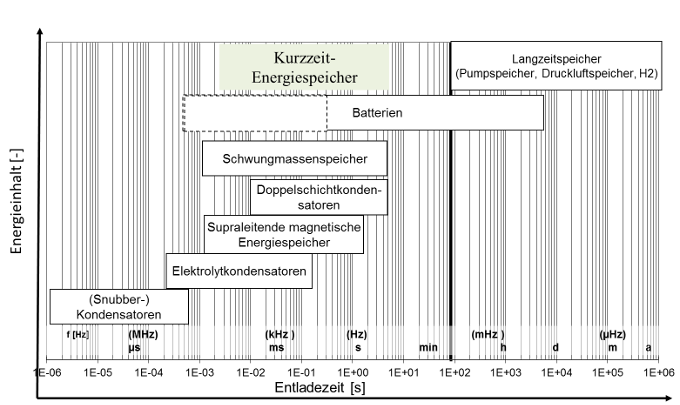
Safe and reliable high-performance energy storage systems
The "Electrical Energy Storage Systems" working group is organizationally located at the Energy Storage Technologies Research Centre (https://www.est.tu-clausthal.de/) in Goslar in the system integration research cluster. There is close technical cooperation with the Institute of Electrical Power Engineering and Energy Systems.
The focus of the "Electrical Energy Storage Systems" working group is the holistic investigation of possible uses for different energy storage systems in stationary and mobile applications. The aim is to select and optimize storage systems for electrical energy on a wide range of time and size scales for the respective application scenarios from a systemic point of view and to operate them in such a way that an optimum can be achieved in terms of economy, effectiveness and stability of the energy supply system.
Overall, the spectrum of storage systems under consideration ranges from relatively small, high-performance decentralized storage systems in the time range of a few seconds for dynamic grid stabilization and energy contents of a few kilowatt hours to medium-sized storage systems with energy contents in the megawatt hour range. The technology range includes pure electrical storage systems such as double-layer capacitors and superconducting coils, mechanical storage systems such as flywheel mass and compressed air storage systems and electrochemical storage systems and energy converters such as batteries and fuel cell/electrolysis units.
The Energy Storage Systems working group is currently focusing primarily on the use of lithium-ion batteries, which represent a key technology for electromobility and stationary storage systems to ensure system stability in the future.
In electromobility, the focus is on charging processes and the fundamental scalability of tests on laboratory cells, individual cells, modules and battery systems. The use of highly dynamic lithium-ion battery storage systems in conjunction with controlled inverters can help to ensure the necessary stability criteria in electrical energy supply networks in the future by guaranteeing the dynamic balance of energy generation and energy demand. The basic understanding of batteries is constantly being expanded through the requirements of the various projects by developing appropriate models. This makes it possible to establish general correlations for future battery development.


